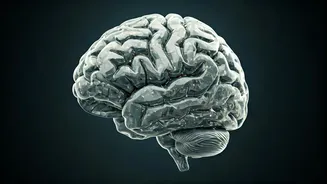Mind Training Benefits
The human brain, like a muscle, thrives on exercise. Regular mental workouts have been proven to enhance cognitive function, much like physical activity
strengthens the body. Scientists have discovered that engaging in specific mental exercises can combat the effects of aging on the brain. These exercises stimulate different areas of the brain, leading to increased neural connections and improved cognitive processes. This can result in better memory, sharper focus, and enhanced problem-solving skills. Moreover, these practices can contribute to overall mental well-being by reducing stress and improving mood. It's a holistic approach, improving your cognitive abilities and nurturing your mental health simultaneously. By incorporating such exercises into a routine, individuals can proactively protect against age-related cognitive decline and promote a vibrant and active mind.
Memory Game Play
Memory games are a powerful way to stimulate and challenge your mind. These games involve recalling information, whether it's remembering a sequence of numbers, matching pairs of cards, or memorizing names and faces. Memory games compel the brain to activate various cognitive functions, thereby strengthening neural pathways and boosting memory capacity. The process of actively trying to remember and retrieve information from memory enhances the brain's ability to store and recall details more effectively. By starting with simpler versions and gradually increasing the complexity, the brain adapts, leading to improvements in both short-term and long-term memory. Playing these games regularly can significantly enhance cognitive functions such as focus, concentration, and attention to detail. This also contributes to improved learning and quicker information recall, which are vital for daily life.
Puzzle Solving Skills
Puzzles are excellent mental exercises, and they come in many forms, from simple crosswords to complex Sudoku puzzles. These activities encourage the brain to think critically, analyze information, and develop problem-solving strategies. When tackling a puzzle, the brain engages multiple cognitive functions, including logical reasoning, spatial awareness, and pattern recognition. Each puzzle presents a unique challenge, pushing the mind to discover innovative solutions. Regular puzzle-solving practices can sharpen critical thinking skills, improving the ability to analyze complex situations and make sound decisions. The satisfaction of completing a puzzle boosts confidence and reinforces the brain's ability to tackle difficult tasks. By including puzzles in your daily routine, you can stimulate your mind, improve cognitive flexibility, and create a more resilient brain. As you engage with different puzzles, you will see noticeable improvements in your cognitive skills.
Mindful Meditation Practice
Mindful meditation is a simple yet extremely effective practice for improving cognitive health and reducing stress. Meditation involves focusing on the present moment, paying attention to thoughts and feelings without judgment. This practice helps to reduce stress levels, which can significantly impact cognitive function. High stress levels can impair memory, focus, and overall cognitive abilities. By integrating meditation into a routine, one can train the mind to stay calm, focused, and present. During meditation, the brain enters a state of enhanced awareness, leading to greater mental clarity and emotional resilience. Over time, meditation can strengthen the prefrontal cortex, the part of the brain responsible for higher-level cognitive functions such as planning, decision-making, and emotional regulation. Regular meditation practice can lead to a calmer and more focused mind. This improves overall mental health and boosts cognitive capabilities.
Learning Something New
Learning new skills and information is a powerful way to boost cognitive function and keep the mind sharp. When the brain is challenged with unfamiliar information, new neural pathways are created, improving cognitive flexibility and adaptability. Learning can include anything from acquiring a new language to studying a new subject, playing a musical instrument, or taking up a new hobby. The process of learning engages multiple areas of the brain, from memory and language to problem-solving and critical thinking. Regularly learning new things keeps the mind active and prevents cognitive decline. This process builds confidence and creates a sense of accomplishment. Furthermore, learning new skills enhances cognitive reserve, which is the brain's ability to cope with age-related changes and cognitive challenges. By making learning a regular part of your life, you are investing in the health and vitality of your brain.

















